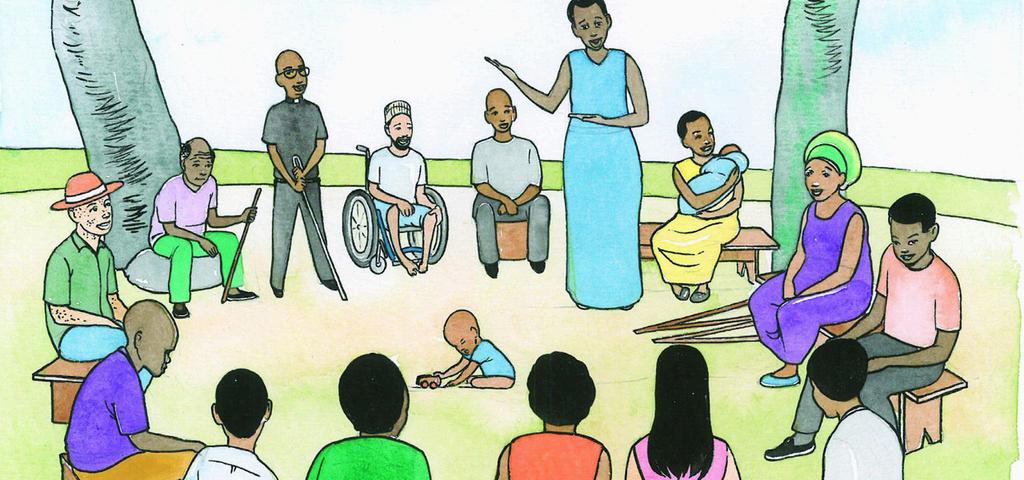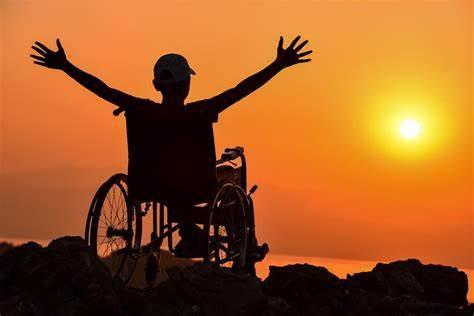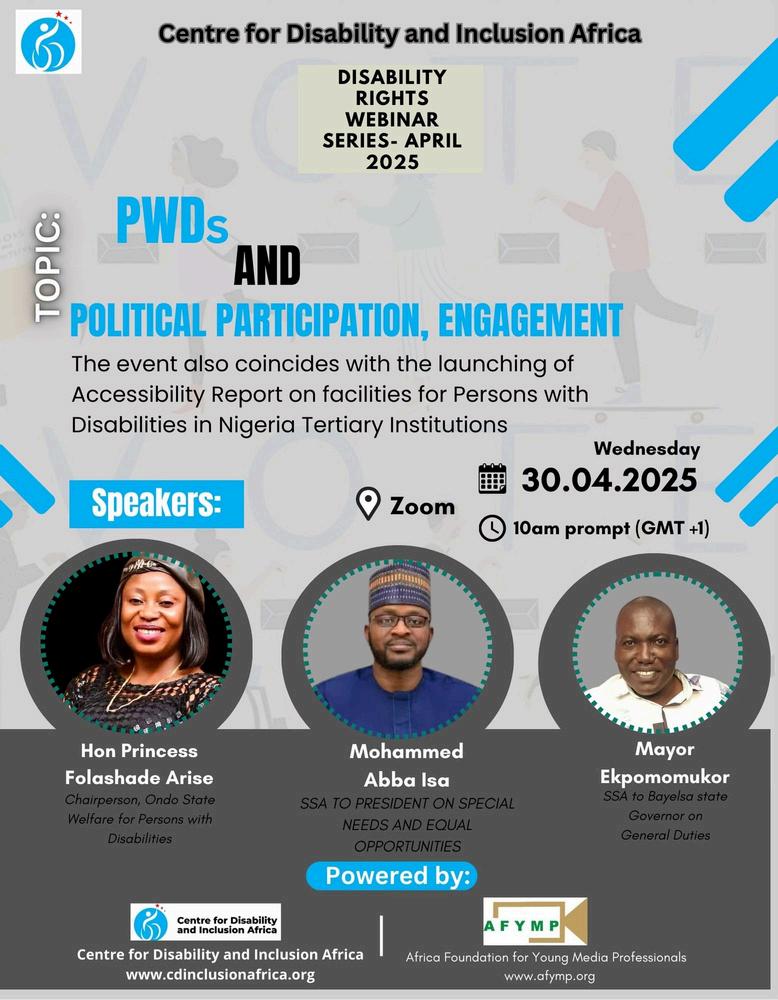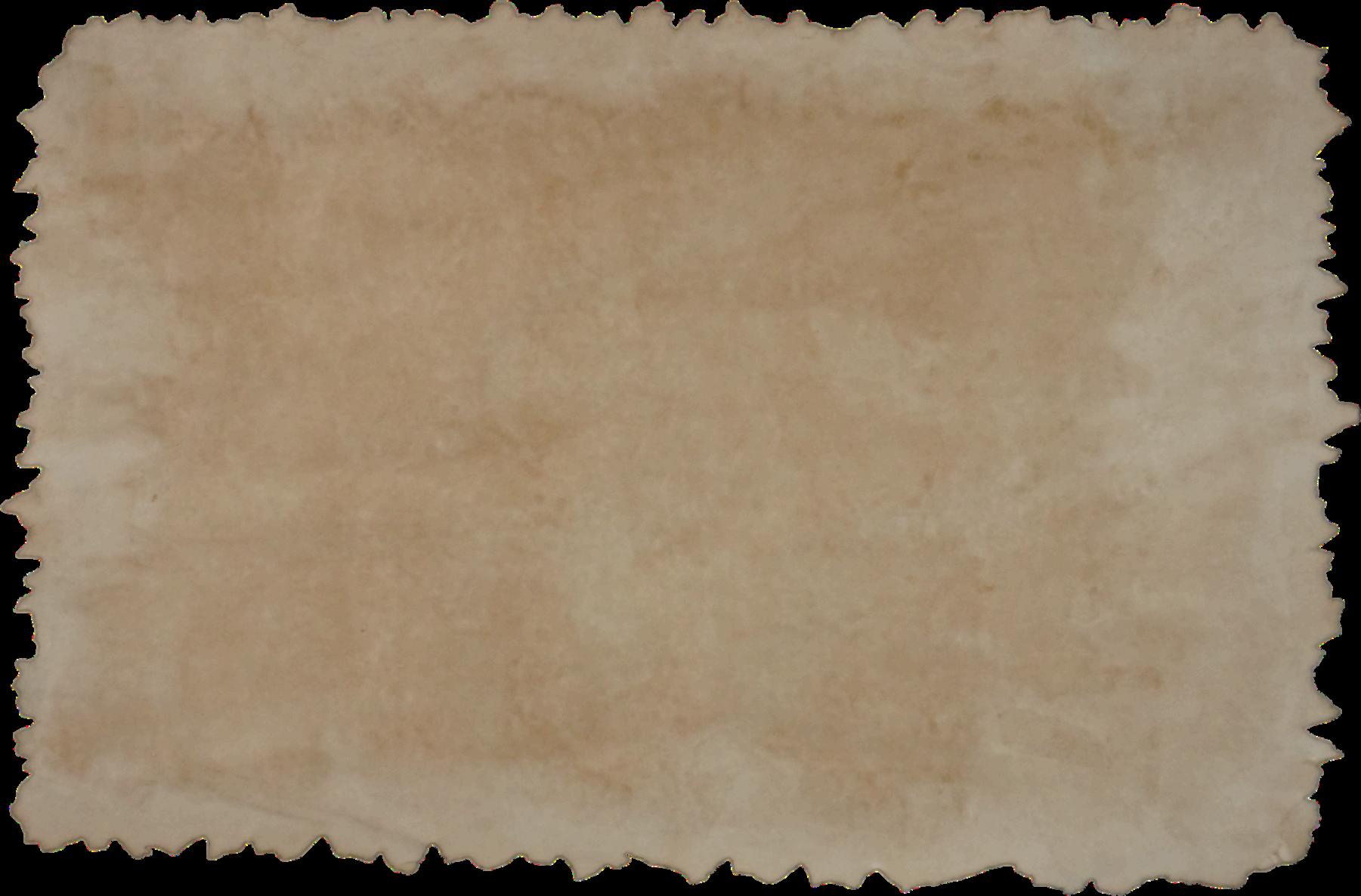BACKGROUND
HARVESTING INNOVATION: THE FUTURE OF AGRICULTURAL TECHNOLOGIES
Persons with Disabilities face multidimensional exclusions in democratic and electoral processes in Nigeria before election, during election and after election.
Several frameworks support the electoral Right of Persons with Disability: The CRPD, the Electoral Act, the INEC Framework on Access and Participation of PwD, the Discrimination Act against Persons with disability, 2018. In fact the Discrimination Act against Persons with Disability Prohibition Act, 2018 clearly states that persons with disability are encouraged to participate in politics and public life.
The Act further stated that the government will actively promote an enabling environment where Persons with disabilities can effectively and fully participate in public life, NGOs and Party. However, despite the clarity of the constitution on this issue, inclusive electoral processes largely remain a mirage.
It is important to promote the leadership of Persons with disabilities in all areas of life as well as ensure their inclusion and participation in decisions that will affect their lives. Inclusion of Persons with disabilities in elections and political processes amplifies their leadership potential.
Participation of PWDs in the electoral process is an integral part of inclusive governance as it ensures they have a stronger political voice and are recognized as equal citizens
Political participation of PWDs place them where they can be actively involved in Policy influence that are important to their lives. Persons with disabilities have complained of political exclusion.
Disability Right Webinar Serie, April 2025 edition of the Centre for Disability and inclusion focused on Persons with disabilities Political participation and Engagement in Nigeria conversation brought together Policy makers, inclusion experts, advocates, PWD Political office holders, aspiring PWDs political office seekers, leaders of OPDs who contributed to the discussion.
Key Speakers at the vent were: Hon. Mohammed Abba Isa, Senior Special Assistant to the President on Special needs and Equal Opportunities, Hon Folashade Arise, Chairperson Ondo State Welfare board for Persons with Disabilities, Hon. Mayor Ekpomomukor, Senior Special Assistant to Bayelsa State governor on general Duties with contributions from others like Hon, Oladosu Olanrewaju, who is the Special Assistant on Disability to Osun State Governor.
Key activities
of the conversation were panel discussion and experience-based sharing as well as contributions from the field by stakeholders
Perspectives shared were focused on three areas.
1-PERSONS WITH DISABILITIES AS POLITICAL ASPIRANTS
-CONFIDENCE, SELF-LEADERSHIP AND VISION
No one will follow a person without demonstrated evidence of confidence and selfesteem. Because society has psychologically abused many persons with disabilities, many lack self-confidence in themselves. Self-leadership is also important. You must have tough skin in terms of discipline, integrity, honesty and a high level of believability.
In most cases this will stem from vision. There must be a goal and purpose. The goal of doing anything at all must be very strong that keeps you awake every day.
For persons with disabilities, you may need to prove beyond reasonable doubt that you can be followed and that you have what it takes to deliver on your promises.
-RESILIENCE, KNOWLEDGE AND ADAPTABILITY
Beyond whatever you may be doing. The above skills are very essential to your success. You should not be afraid of being called names. You must bring your A-list game to play here as the environment can be toxic. It is essential you must have good knowledge of the community as well as come to the table with requisite skills: data, economics, finance, management among others. You do not have to know it all, but a sizable level of this must show in your communications and political manifestos.
Having the right and basic qualifications and experience for the elective
post you are filling for will be essential
WHAT CAN POLITICAL PARTIES DO?
The following ways are practical to support the political participation of PWDs: provide training about politics to PWDs and OPDS, support PWD contestant in contesting for elections, support political parties to include PWDs special quota, in planning and preparation
-Help PWDs to develop a stronger political voice in their Political Parties
3-
Legal framew
How can framework help?
National Commission (NCPWD) is also a enforcement. The Electo by allowing assistance the Independent Nati (INEC) has introduced m and assistive devices to
Some leading Political commitments to inclusivity but the reality continues to point to low representation.
A final note we need to understand is that while legal and party frameworks exist to support PWDs in Nigerian politics, practical inclusion lags due to structural, economic, and cultural barriers. There is also limited evidence of party-driven initiatives to close the gap.
Participants believe a strong will and deliberate actions from stakeholders will ensure full implementation
if we truly want to amplify PWDs leadership potentials, ensure political inclusion Finalthoughts, encourage them to have a stronger political voice. Time is now to be intentional about allowing PWDs to occupy decision making positions which can influence policies that are important to their lives. The virtual meeting had in attendance PWDs Political Office holders, Policy makers, PWDs political aspirants, leaders of OPDs
· PwDs face several barriers and multidimensional exclusions in democratic and
electoral processes in Nigeria before, during and after election.
· A major milestone in Political inclusion is the existing legal frameworks and strategies that have already made provision for political participation of Persons with Disabilities:
African Disability Protocol, Discrimination
Against Persons with Disabilities (prohibition).
· PwD representation is non-existent in the
Nigerian National Assembly (lower and upper
chamber) and among Nigeria Governors.
· PwD who want to occupy a position of influence must be determined, focused and
ready to have a healthy self-esteem and be
ready to overcome stigmatization and derogatory languages.
· Political inclusion and participation
requires a concerted effort of Key stakeholders:
PwDs, Government, OPDS, civil societies, political parties.
· PwDS needs to mobilize as a formidable
force for a stronger political voice and
relevance.
· PwDs need political awareness and education to effectively participate in leadership.
· Promoting independence, inclusion and
equal opportunities for people with intellectual and developmental disabilities
requires a multifaceted approach that
addresses social, educational, employment, health and community needs.
· Leadership positions will not be given out
of empathy, PwDs must possess excellent
leadership qualities and character.
· There is a need for domestication of
Discrimination Against Persons with Disabilities (prohibition) Act at the local
Government level.
3
PERSPECTIVES
· PwD must be active in politics at the grassroots level, and build a strong grassroots network.
More about Centre for Disability and inclusion Africa
Centre for Disability and Inclusion Africa (registered as Sage Initiative for Disability and Inclusion) is established to create an inclusive sustainable and transformative society across Africa. Though headquarters is based in Nigeria., its activities spread across Africa.
The Centre works in four key areas: Policy, Advocacy, Media PWDs rights.
The Centre through its policy work collaborates with stakeholders in agenda setting, promotion of accountability and implementation OF workplace and social inclusion, housing, health, education and transportation rights/protocols. CDIA continuously demands implementation of processes and strategies that leave no one behind. It also supports building of practical skills which can make this achievable.







